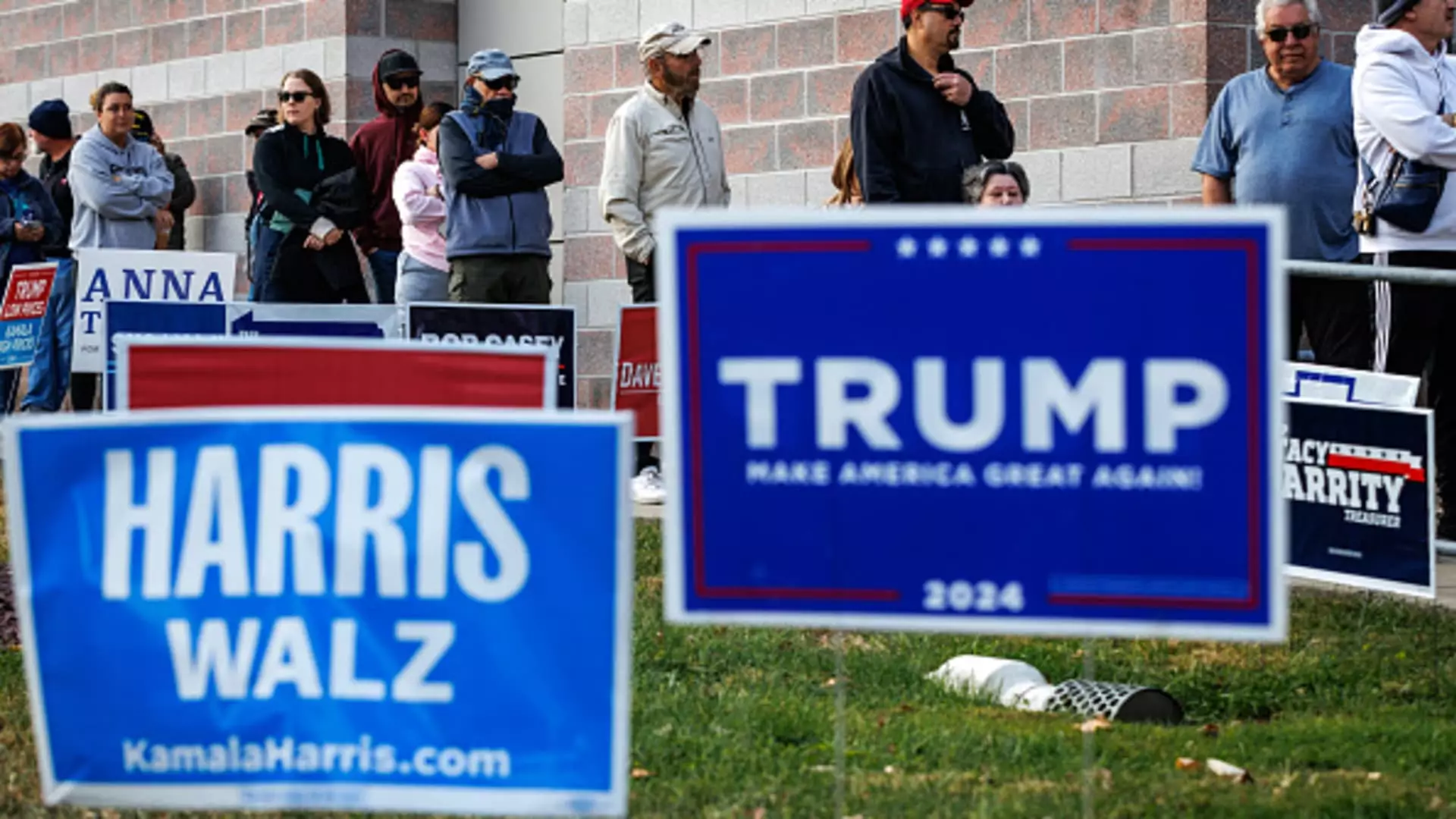The recent political climate has seen a notable shift in the sentiments of voters aged 50 and above, revealing deep-rooted concerns that could reshape political strategies for both major parties. According to a post-election survey conducted by the AARP, a significant number of these voters feel economically worse off compared to four years ago. The data provides crucial insights not only into voter behavior but also into the broader socio-economic dynamics affecting an increasingly influential demographic.
Following the latest elections, a staggering 47% of voters aged 50 and over indicated they were “worse off now,” a sentiment echoed even more strongly among swing voters in that age bracket, where the number reached 55%. These findings illuminate widespread economic insecurity that may not have been adequately addressed during the electoral campaigns. The issues of inflation and rising living costs continue to weigh heavily on this demographic. Many older voters are feeling the pinch manifested in skyrocketing prices of basic necessities, prompting them to scrutinize candidates’ economic plans closely.
Furthermore, AARP’s survey shows that concerns surrounding day-to-day financial issues are shaping voter attitudes. For instance, in the context of significant economic events like the rising inflation, voters aged 50 and above indicated that food prices were their primary concern, chosen by 39% of respondents. Other pressing issues included healthcare, with 20% citing worries around prescription drug costs, and 14% pointing to housing expenses. This preoccupation with economic survival undoubtedly influenced their voting decisions.
The implications of these findings for electoral strategies are vast. Older voters are more likely to turn out to the polls over financial issues than other prevailing concerns. Bob Ward, a Republican pollster, asserted that the support from the 50-plus demographic was pivotal in delivering Republican victories across numerous congressional races. This constitutes a valuable lesson for parties moving forward: to win over this crucial voting block, they must prioritize economic security in their platforms.
Interestingly, while Republicans captured the majority of older voters concerning personal economic issues, sentiments surrounding Social Security revealed a more nuanced picture. The polling data suggested a close competition, with voters over 50 favoring Democrats on Social Security by a narrow margin. Historically, the Democratic Party has been viewed as a more favorable advocate for Social Security; however, the current political climate suggests these positions may be shifting. For both parties, understanding how to secure voter trust on such vital matters will be indispensable in upcoming elections.
Healthcare and Social Security remain cornerstones of concern for older Americans. AARP’s poll indicated broad support among older voters for measures that could lead to negotiated prescription drug prices, as well as policies designed to facilitate aging in place. These issues resonate deeply and reflect the need for a more comprehensive approach toward the welfare of the aging population.
However, as parties craft their platforms, they must tread carefully. Both the current administration and past administrations have been criticized for lacking actionable plans to ensure the long-term viability of Social Security, with estimates indicating that the trust fund could face depletion by 2033. Nancy Altman, the president of Social Security Works, emphasizes the urgency for Congress to address this pressing issue. The reality is stark: without proactive measures, a significant portion of Americans could face dire financial consequences in their retirement years.
The findings from the AARP survey present a clarion call for political leaders to reevaluate their strategies as they seek to secure votes from older Americans. Engaging with voters on their terms—addressing their pressing financial anxieties and advocating for the preservation and improvement of essential programs like Medicare and Social Security—will be critical. Expectations for candidates must encompass not only promises during campaigns but feasible plans for implementation post-election.
As the demographic landscape continues to evolve and the economic pressures mount, older voters will remain a formidable force in American politics. Recognizing their concerns about financial stability is not merely a tactical political move; it reflects the moral obligation to ensure that all citizens, particularly the elderly, can look forward to a more secure financial future. By prioritizing these issues, political parties can better align with the interests of this voter block and build a foundation for meaningful dialogue and policy change.

